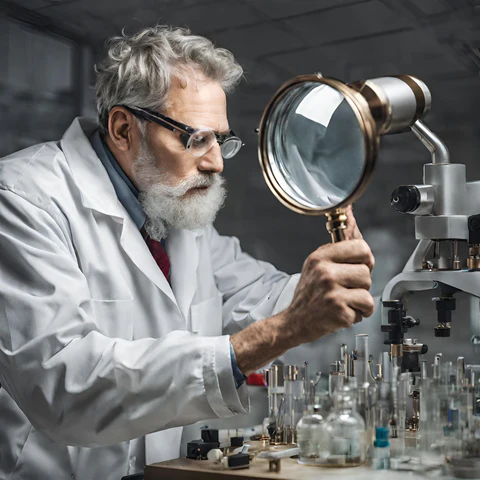 Add My Company
Add My Company

Topics to consider when choosing your outdoor connector supplier…
Material Quality, Sunlight, and UV Exposure:
High-quality materials play a pivotal role in the durability and longevity of waterproof RJ45 connectors. When it comes to plastics used in these connectors, not all plastics are created equal. Some plastics perform exceptionally well in outdoor or sun-exposed environments, while others may degrade rapidly when exposed to UV radiation. Here's a closer look at why certain plastics are preferred for such applications:
- UV Resistance: Some plastics are formulated with UV-resistant additives or stabilizers. These additives help protect the plastic from the damaging effects of UV radiation. UV-resistant plastics are essential for connectors used in outdoor settings where they are exposed to sunlight, as UV radiation can cause plastics to become brittle and discolored over time.
- Weatherability: Plastics that are well-suited for outdoor use are designed to withstand a wide range of environmental conditions, including sunlight, rain, snow, and temperature fluctuations. These plastics maintain their mechanical properties, such as flexibility and strength, even when exposed to harsh weather conditions.
- Longevity: The choice of UV-resistant plastics ensures the longevity of the connector and prevents premature failure. Connectors made from UV-resistant materials are less likely to crack, warp, or deteriorate over time due to UV exposure.
- Avoiding Environmental Stress Cracking (ESC): Certain plastics, when exposed to UV radiation and environmental stress simultaneously, can be prone to a phenomenon known as environmental stress cracking (ESC). ESC occurs when the combined effects of UV radiation and mechanical stress lead to the development of small cracks in the plastic, compromising its integrity. UV-resistant plastics are formulated to resist ESC and maintain their structural integrity.
Potential Problems with UV Exposure in Plastics:
When plastics are exposed to UV radiation for extended periods without adequate protection, several problems can arise:
- Brittleness: UV exposure can cause plastic materials to become brittle, making them susceptible to cracking or breaking under mechanical stress.
- Discoloration: Plastics exposed to UV radiation often undergo discoloration, which not only affects the appearance but may also indicate the material's degradation.
- Reduced Mechanical Strength: UV-induced degradation can weaken the plastic's mechanical properties, reducing its overall strength and performance.
- Shortened Lifespan: Prolonged UV exposure can significantly shorten the lifespan of plastic components, leading to premature failure of the connectors they are used in.
To ensure the highest performance and longevity of waterproof RJ45 connectors in outdoor and UV-exposed environments, it's crucial to select connectors that use UV-resistant plastics or other protective measures. These connectors are engineered to withstand the rigors of outdoor use, maintain their integrity, and provide reliable connections even in challenging conditions. Always refer to the manufacturer's specifications and material information for details on UV resistance when selecting connectors for specific applications.
What types of plastics are commonly used?
When it comes to outdoor applications and waterproof connectors, there are three commonly used plastics known for their durability and resistance to UV exposure and harsh environmental conditions. These plastics are:
Polyethylene (PE):
Types: There are several types of polyethylene, with the most common being HDPE (High-Density Polyethylene) and LDPE (Low-Density Polyethylene).
UV Resistance: HDPE, in particular, is known for its excellent resistance to UV radiation. It is often used in outdoor applications where prolonged UV exposure is a concern.
Attributes: Polyethylene is valued for its flexibility, impact resistance, and chemical resistance. It is often used in cable jackets and outer protective layers for connectors.
Polyvinyl Chloride (PVC):
Types: PVC is available in various formulations, including rigid PVC (uPVC) and flexible PVC (known as PVC-U and PVC-P, respectively).
UV Resistance: While rigid PVC may have moderate UV resistance, flexible PVC is often formulated with UV stabilizers to enhance its resistance to UV radiation.
Attributes: PVC is known for its versatility, corrosion resistance, and ease of processing. Flexible PVC is commonly used for cable jackets and insulating components in connectors.
Polypropylene (PP):
Types: Polypropylene is available in various types, including homopolymer (PP-H) and copolymer (PP-C).
UV Resistance: Polypropylene is inherently UV-resistant to some extent, making it suitable for outdoor applications. However, UV stabilizers may be added to enhance its UV resistance.
Attributes: Polypropylene offers good chemical resistance, durability, and lightweight properties. It is used in connector housings and insulating components.
It's important to note that the specific formulation and UV resistance of these plastics can vary among manufacturers and product lines. When selecting waterproof connectors for outdoor applications, you should consider the following:
Material Specifications: Refer to the manufacturer's specifications for the connector's materials. Look for information on the type of plastic used and its UV resistance characteristics.
IP Rating: Check the IP rating of the connector, which indicates its resistance to dust and moisture. Higher IP ratings generally signify better protection against environmental factors.
Certifications: Ensure that the connectors meet relevant industry standards and certifications for outdoor and harsh environment use, which may include UV resistance requirements.
Manufacturer's Recommendations: Reach out to the manufacturer or supplier for guidance on the most suitable connector for your specific outdoor application. They may have product lines tailored for UV-exposed environments.
Environmental Factors: Consider the specific environmental conditions your connectors will be exposed to, such as the intensity and duration of UV exposure, temperature fluctuations, and exposure to chemicals or moisture. This will help determine the most appropriate material and connector design.
By carefully considering these factors and consulting with the manufacturer or supplier, you can identify the right plastics used in waterproof connectors for your outdoor applications, ensuring long-lasting performance and reliability.
At Selectronix Onboard Ltd we only partner with organisations who operate beneath UL certification processes, to ensure the materials we provide are of the highest quality, ensuring the life time of the parts we provide have longevity. Partners such as Amphenol LTW who are regarded as a market leader in the industrial connector market.
For more information on Topics to consider when choosing your outdoor connector supplier… talk to Selectronix Onboard Ltd

